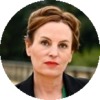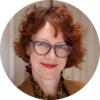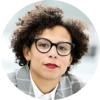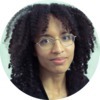26 November 2020, 2 pm - 5 pm, live from the Nikolaisaal!
The transformation of democratisation processes in the 21st century is becoming increasingly evident - not only in the analysis and discussion or of gender and discrimination issues, but also in overarching participatory discourses. In the often patriarchal and hierarchically managed cultural ‘manufactories’, a change is needed that first of all identifies problems and enables a transformation towards contemporary, democratic operating models. The potential of diversity and co-determination that involves all members of an organisation is increasingly realised and tapped in the cultural sector. What awareness-raising measures are necessary to ensure equality and equal rights? How can we raise awareness for progressive democratisation processes at all levels of the hierarchy, from managers to interns?
The digital main forum enlivens one of the three main topics Climate, Crisis & Culture, Democracy & Culture and Participation & Culture with interactive discussions, expert moderators and top speakers.
1st Panel 2:00 - 2:45 pm
Focus variety - how democratic are our cultural institutions?
Our society is diverse. But what about the diversity and openness of European cultural institutions? Cultural institutions are faced with the challenge of transforming their confusing and well-established structures and establishing an open corporate culture with democratic processes within their own company. This requires a constant discourse: Where do we stand? Which operator concepts and management structures can help? Which cultural policy measures are necessary?
|

|
Prof. Dr. Oliver Scheytt
Kulturpersonal GmbH & Kulturexperten GmbH, Managing Director
|
|
|
|

|
Heike Bohmann
Musikfestspiele Sanssouci und Nikolaisaal Potsdam gGmbH, Managing Director
|
|
|
|

|
Prof. Dr. Hermann Parzinger
Stiftung Preußischer Kulturbesitz, Präsident
|
|
|
2nd Panel 3:00 - 3:45 pm
Dare more democracy
Political developments in Europe are characterized by increasing extremist tendencies. They can endanger the political climate, social cohesion and thus also democracy. Art and culture not only have an aesthetic dimension, but also a political dimension that has always held up a mirror to society and understood itself as a forum for the critical examination of social changes and developments. Is culture a systemically important part of our democracy? Can culture encourage social participation and active citizen participation?
|

|
Prof. Dr. Ulrike Guérot
Political scientist & publicist
|
|
|
|

© Birgit Hupfeld
|
Julia Wissert
Theater Dortmund, Artistic Director
|
|
|
|

|
Dr. Michael Merschmeier
Der Theaterverlag, Herausgeber
|
|
|
3rd Panel 4:00 - 4:45 pm
Diversity Matters
Europe is diverse. However, this social diversity is not yet adequately reflected in the cultural scene. Diversity and equal opportunities should of course be implemented in culture, personnel and communication management. However, the lack of diversity in artistic management and decision-making positions remains a reality.In order to effectively utilize the potential of a cultural enterprise, new and proven approaches and methods are required to promote diversity in staff, audience and program of cultural institutions. Is today's program relevant to tomorrow's audience? Which strategies are necessary to initiate processes of opening up for more diversity and participation?
|

|
Prof. Dr. Stefan Weber
Museum für Islamische Kunst, Direktor
|
|
|
|

|
Sandrine Micossé-Aikins
Management Diversity Art Culture
|
|
|
|

|
Shermin Langhoff (requested)
Maxim Gorki Theater, Künstlerische Leitung
|
|
|
Subject to changes.
A change to the parallel forums is possible at any time.
Back to overview